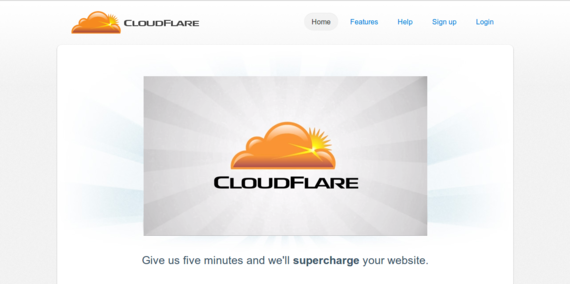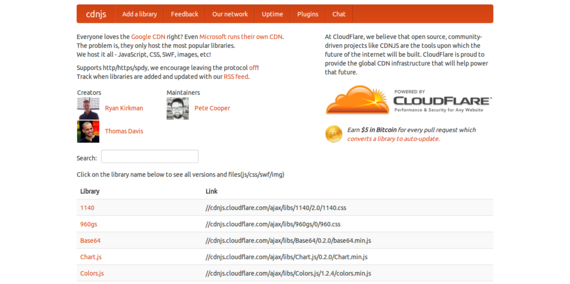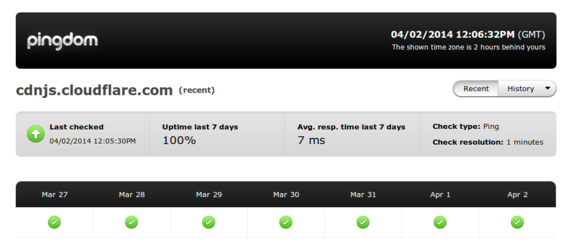As a web developer, the last thing on your mind is worrying about having a website that can withstand thousands of visitors at once, but then it happens - your newest project has just reached the trending barrier on social media websites like Twitter, Hacker News and many more.
You would think that this is a good thing, right? Well, yes, of course it is. But, for some - it can turn out to be a real nightmare, especially when it happens and you realize you haven't prepared for it. Developers, more often than not, rely on hosting services that their friends, or other developers have suggested.
What is the one thing these hosting services have in common? They charge you based on the amount of resources you're using, and so you can imagine why it could turn out to be a nightmare.
Luckily, the one solution I'm quite pleased with, is a Content delivery network. (CDN). By utilizing such a solution, you're enabling yourself to serve heavy media files through a network of computers, that are not only routed to the closest datacenter of the user requesting it, but also stay online even during the most absurd traffic surges.
A content delivery network or content distribution network (CDN) is a large distributed system of servers deployed in multiple data centers across the Internet. The goal of a CDN is to serve content to end-users with high availability and high performance. CDNs serve a large fraction of the Internet content today, including web objects (text, graphics and scripts), downloadable objects (media files, software, documents), applications (e-commerce, portals), live streaming media, on-demand streaming media, and social networks. [1]
I hope that the following platforms will help to solve some of these problems for you, but most importantly; enable you to rest peacefully, knowing that you won't have to overpay your hosting provider thousands of dollars for an honest mistake.
This company has got network reach of over 90 different countries, which in the long run is going to make all of the difference when it comes to serving content quickly and effectively. It goes without saying that MaxCDN is quite popular among the developer community, and some of the clients include:
- jQuery
- GitTip
- Yoast
very developer oriented communities. It does unfortunately cost money to sign up, though you're going to get exactly what you pay for.
I also want to mention that MaxCDN is hosting the websites OSSCDN, and also Bootstrap CDN - which are basically meant to save you a lot of bandwidth along the way, by giving you the opportunity to use a CDN for popular libraries and frameworks, instead of having to serve them by yourself.
The thing that CloudFlare stands out the most with, is the free plan that they offer to anyone who's in need of a professional CDN. It has its limitations, but it's undoubtedly one of the best ways to go about serving content to your users, especially if you've dealt with those traffic spikes in the past.
The features that have stood out for me since I've began using CloudFlare:
- Very little configuration options.
- "Always Online" mechanism, serve content even when the website is gone!
- IPv6 integration makes it possible to have dual connections.
- Free plan isn't limited to any of the load features.
On average, a website on CloudFlare loads twice as fast for its visitors, sees 65% fewer requests and saves 60% of bandwidth. You'll be able to see the exact speed benefits and savings with your personalized CloudFlare analytics report for your site.
It's very possible that sometimes we're covered with bandwidth, and don't need to worry about a sudden traffic spike and the impact it may leave on the server you're using, instead - we want something to help us deliver our content in quicker ways.
For this, I recommend 'cdnjs', which is a popular CDN collection for some of the most popular CSS and JavaScript libraries and frameworks that we know today. I've used it on my projects in the past, and it's truly a remarkable service; provided by CloudFlare.
You can see that the service is VERY reliable.
Cloud is Advancing
The whole cloud industry is changing at a very rapid pace, you might have heard of the recent news that big cloud providers like Google and Amazon are dropping their prices drastically, to help cater to those with less budget; but also to send a message, as more and more similar services are entering the market.
*cough* DigitalOcean *cough*
It's nice to have a free service available at your disposal, which is not only easy to integrate - but also provides you with that sense of security, it's always going to be better to be safe and prepared, than to be sorry and distressed.




